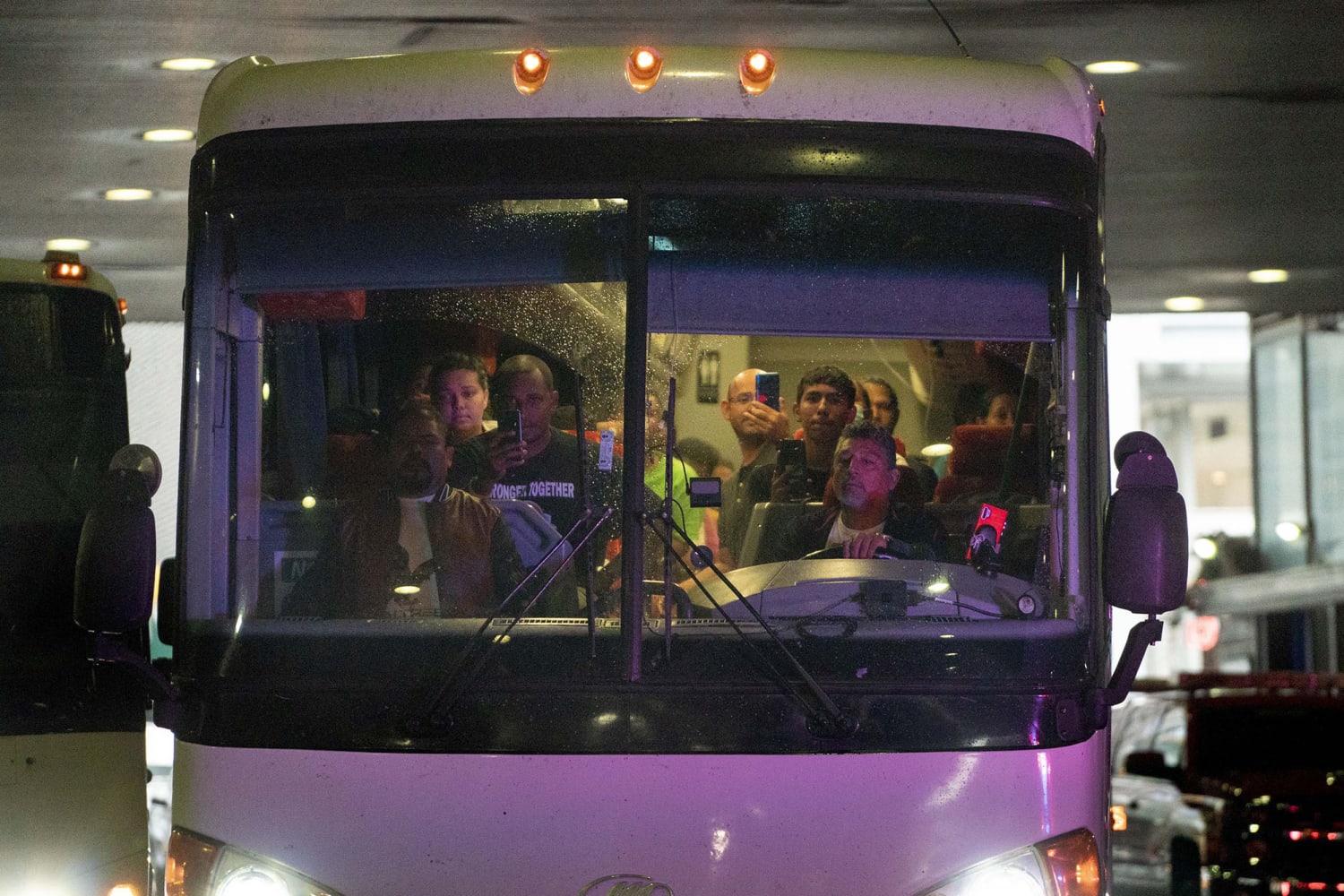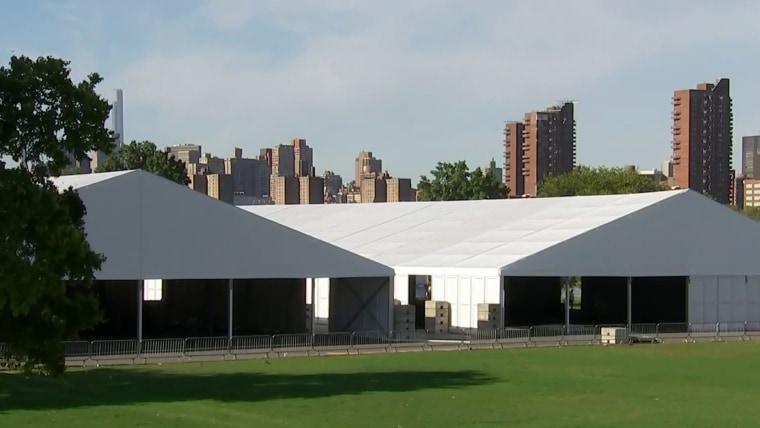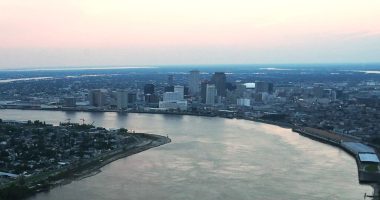Migrants who have been bused to New York City in the thousands are finding themselves in a fruitless hunt for work while they try to build lives in the United States.
“It’s all about work. It’s already been about a month, a month and a half in New York and we need to find work,” Yorvin Mateus, 24, said.
“I just want to work and be able to fend for myself, not depend on the government,” the Venezuelan migrant added as he sat with two friends outside a newly-erected tent shelter at Randall’s Island, on the East River between the Manhattan and the Queens boroughs.
But Mateus, who is among the more than 21,400 migrants and asylum-seekers who have come to New York since the spring, remains barred from employment by federal policy. These people are part of a wave of new arrivals as Republican-led states have sent buses up from the southern border.
Mateus and his friends made their way to the southern border after fleeing political instability and economic collapse in their home country.
The men said they had been in the shelter system in the Brooklyn borough before coming to Randall’s Island, where they are living with about 20 other men. They said the tent facility, which has the capacity to hold hundreds of people but is mostly empty, was much better than other shelters they had lived in.
Yet, with work hard to come by, the trio planned to try their luck in Chicago, another city that has been taking in migrants.
While the number of new arrivals has recently slowed, the city’s limited resources are still being tested. Volunteers and aid groups have scrambled to provide food, clothing and other basic necessities, and Mayor Eric Adams’ administration has opened dozens of emergency shelters, including at a midtown hotel, for hundreds of migrant families.
Still, employment is the persistent missing link, some migrants said.
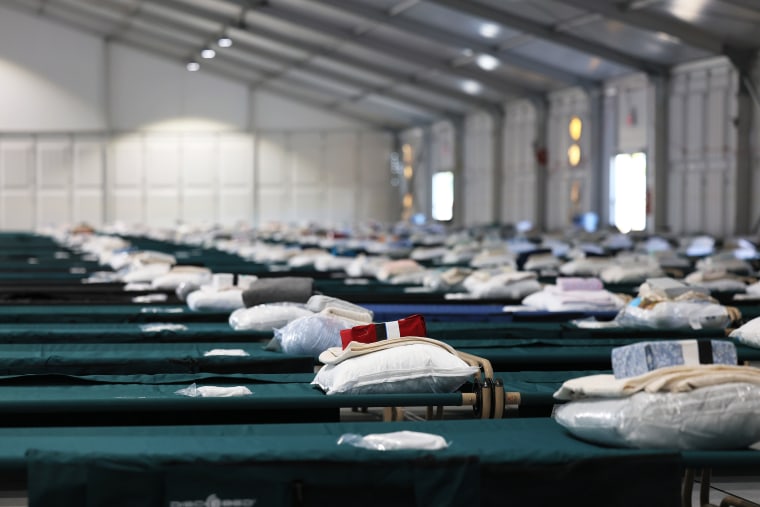
Jan Rojas, 30, a Venezuelan migrant who came to New York with his wife and four children, said he has been unable to find work. The family has spent 15 days at the more than 1,000-room Row Hotel, which the city has said will initially serve 200 families, and where migrants are living alongside tourists.
“It’s been difficult for us. The situation is worrying because I have four children to take care of and we don’t know how long they will let us stay here,” he said.
“That is really what is worrying me, that I don’t have a job and I don’t know what to do,” Rojas said.
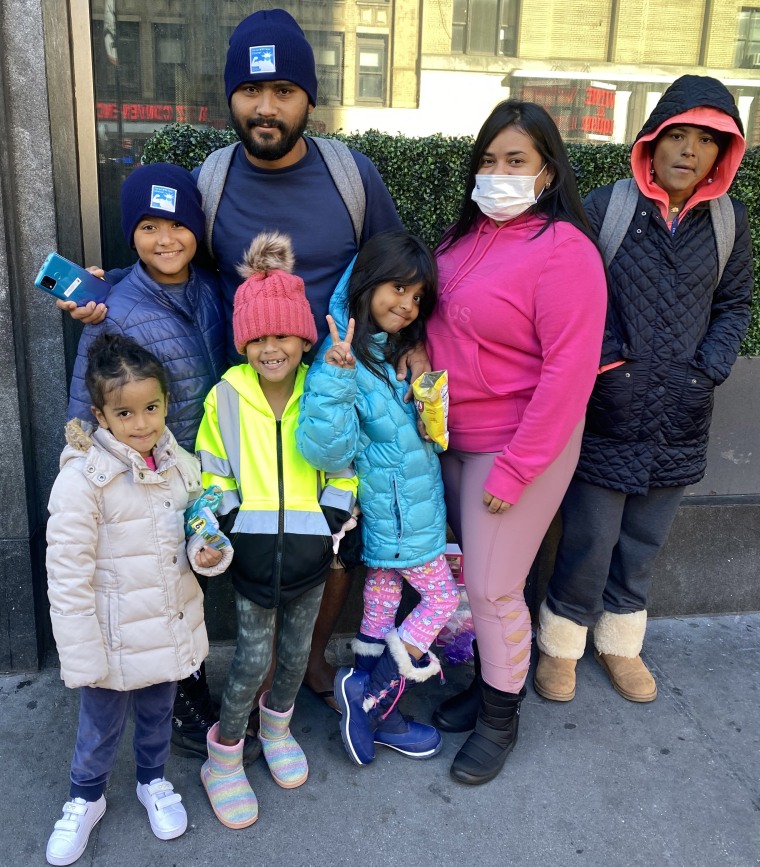
Last month, he and his family gathered outside the hotel to receive children’s clothing from volunteers. The hotel is a few blocks from the bus station where the migrants have been arriving.
While his four children already had bright-colored puffer coats and hats, Rojas was still in flip-flops and shorts, the only clothing he was able to take with him when he left his country.
He said that every time he tried to find a job, employers asked him for work documents he did not have and turned him away.
Asylum-seekers cannot apply to receive work authorization until 150 days after submitting their applications and are ineligible to be granted work permits until those applications have been pending for 180 days. Many other migrants won’t be eligible for work permits at all.
Those migrants and others who are waiting face uncertainty and potential exploitation as part of the city’s undocumented population, looking for work under the table.
Adams and others have called on the federal government to address the work restrictions during the ongoing pandemic, which has seen worker shortages.
“Clearly, we need national immigration policies. You can’t have individuals come to a country and cannot work for six months when they’re capable to do so and we have an employee shortage in many places,” he said last week.
“I believe that we are going to manage those who are here, not only to give them a place to sleep, but education, food, clothing and all the things we do for everyday New Yorkers who are in need of city services.”
The city told NBC News that as of Oct. 23, “over 21,400 asylum-seekers have gone through the system and been offered a place to rest at night since this spring,” with more than 16,000 asylum-seekers currently in its care.
The flow of buses from the border — at times as many as 10 a day — has greatly ebbed after the Biden administration said last month it would be turning many migrants back across the border.
Adams has praised the Biden administration for putting in place the “decompression strategy” to help cities like New York.
Ilze Thielmann, the director of Team TLC NYC, has been part of the volunteers greeting the migrants and helping them navigate their immediate needs since they began arriving months ago.
She said the Biden administration’s new policy was “terrible, because I’m afraid that people are going to be trapped in a very dangerous situation on the other side of the border.”
“I can’t even imagine anything more devastating and heartbreaking than making the journey and just being told, ‘Sorry, you can’t come in,’” she said.
But with the new reality, Thielmann said, the volunteers could shift their focus from dealing with all of the arrivals to “trying to serve the people who already arrived.”
“We can actually turn back to the people who’ve arrived here and actually try to give them some help, and help them form a new life here,” she said.
Venezuelans have made up the majority of migrants being bused by Republican governors to Democratic-led cities.
An estimated 6 million Venezuelans have fled their country amid food insecurity and political instability, and the number of those crossing the U.S. border has increased fourfold over the past year, according to the Department of Homeland Security.
Ramón, another Venezuelan migrant staying at the Row Hotel, said he had family members who were making the dangerous journey to the border when the Biden administration began turning many away.
“They worked so hard to get here,” the 28-year-old said, asking that his last name not be used for fear of retaliation in his immigration case. He came to the U.S. with his pregnant wife and three children and said they suffered violence along the way, including being kidnapped.
“Thank God, we are all together,” he said
The Row Hotel provided ample food and shelter for his children, he said, and he was grateful to have made it to New York, even though he also has been unable to find work.
“It was all of our dream,” he said.
Source: | This article originally belongs to Nbcnews.com


